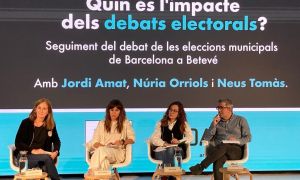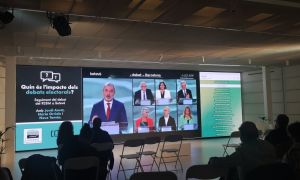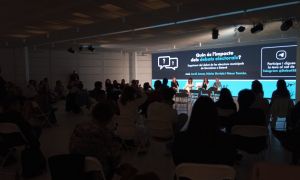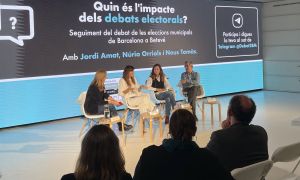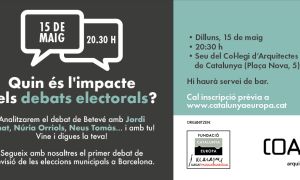The Fundació Catalunya Europa and the Colegio de Arquitectos de Catalunya organised on Monday, 15 May, the follow-up to the first televised debate within the 28-M electoral campaign of the municipal elections in Barcelona.
What is the impact of electoral debates? What are they for? Can they change the vote? Given the proliferation of channels and the avalanche of messages we receive every day, what is the effectiveness of the debates? Do they influence electoral behaviour? Do they contribute to the democratic quality of public debate?
Issues that we have anatulated with three experts in politics and communication:
- Jordi Amat, writer, philologist and literary critic.
- Neus Tomàs, journalist and deputy director of elDiario.es
Núria Orriols, political scientist and journalist for the newspaper ARA.
The director of the Catalonia Foundation Europe, Dolors Camats, has been in charge of moderating the debate that has been held in the auditorium of the College of Architects of Catalonia (Plaça Nova, 5)
Those attending the debate were able to comment during the broadcast of the Betevé debate via a Telegram chat.
Information on the betevé election debate:
Under the name of 'The Barcelona Debate', betevé has gathered the seven candidates of the 28-M currently represented at the City Hall to discuss many of the issues that have marked the political agenda in the last four years distributed in six main blocks based on citizens' concerns collected in the barometer and a minute of gold end.
These are the candidates for mayor of Barcelona who have participated in the electoral debate:
- Ernest Maragall (ERC)
- Ada Colau (BComú)
- Jaume Collboni (PSC)
- Xavier Trias (TriasxBCN)
- Anna Grau (Cs)
- Daniel Sirera (PP)
- Eva Parera (Valents)


